'A good connection': How a pub landlord wound up raising ravens hatched at the Tower of London
In the sprawling backyard of a pub northeast of London, England, three raven chicks have taken up residence near the picnic tables and vegetable gardens.
Hatched at the Tower of London this spring, the chicks were moved to their new quarters in a small village in the county of Suffolk to live with Mike Keen, a pub landlord who's gained notoriety as the "Raven Whisperer."
"It's kind of a big thing for a little pub in Suffolk," said Keen, 49.
Back in the 17th century, King Charles II insisted on the constant presence of ravens at the tower, after he came to believe if they were ever to leave, the kingdom and the tower itself would fall.
During the Second World War, British Prime Minister Winston Churchill asked that at least six birds reside at the tower at all times. Playing into the superstition, the tower has kept seven ravens ever since — six heirs and a spare, so to speak.
Until recently, the tower had generally relied on outside breeders to maintain the raven population. But on April 23, the tower saw the first raven hatching in 30 years.
The tower's ravenmaster, Christopher Skaife, was approached last year by a friend who had a pair of ravens and thought it was the right opportunity for the tower to begin breeding a bloodline in house.
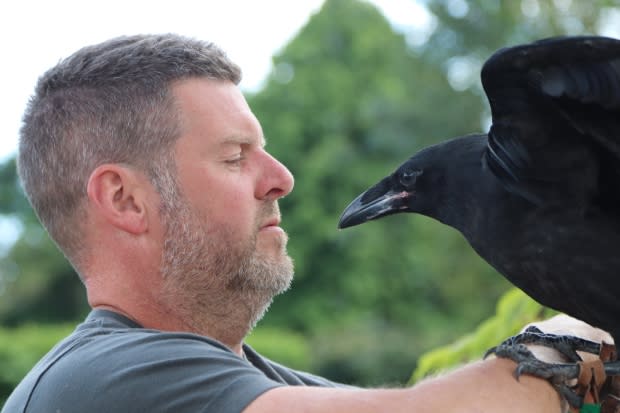
Four chicks were hatched at the tower, but George is the only one to stay there with the current flock of seven. The three others were moved 130 kilometres north to be raised by Keen, who was described recently as the "Raven Whisperer" in the Daily Telegraph newspaper.
Keen finds the title amusing but doesn't refer to himself that way.
"I've got a good connection with them but there's nothing whispery or magical about it, I'm afraid to say."
Keen had acquired his own raven, Grippe, last year. He and Skaife connected over social media and started trading tips about raising and training the birds before the ravenmaster asked Keen to look after the young birds a few weeks ago. It was a challenge he was more than happy to take on.
Keen said Skaife was impressed with how tame Grippe was and how she was able to fly back to his hand when he called for her.
Making themselves at home
The Boot pub isn't home only to Keen and the ravens. It also houses two dogs, a kitten, Icelandic sheep, ducks and turkeys.
After moving around as a child from England to Saudi Arabia to Nigeria, Keen never had the opportunity to have a pet. When he signed a 20-year lease on The Boot last year, he knew this was his chance to have a home filled with animals. He was happy to add ravens to the mix.
"Growing up abroad, it's nice to look up your homeland and see all the iconic buildings and see all the history, so the tower and the story of the ravens is quite a big thing for us."
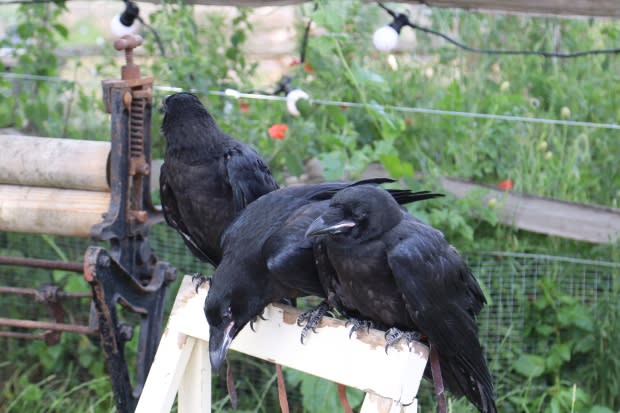
The chicks slept with Keen in his bedroom for their first 10 days in Suffolk, but once they got to a certain weight and started "projectile pooping," he moved them into a new aviary outside the pub.
Like the Suffolk chicks, the Tower of London ravens are kept under a watchful eye.
The tower sees more than three million visitors every year who come to visit the Crown Jewels and learn about the historic site.
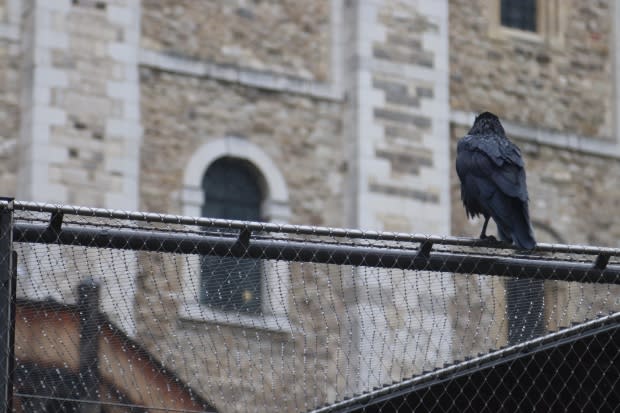
The ravens may catch the tourists off guard, especially if they aren't aware of their presence before they arrive, but American Elizabeth Mersing knew the story before journeying to the tower.
"I learned about them growing up," Mersing said as she watched one of the ravens, Merlina, hop around and shake raindrops off her feathers.
"Probably high school history or maybe just my love of all things British."
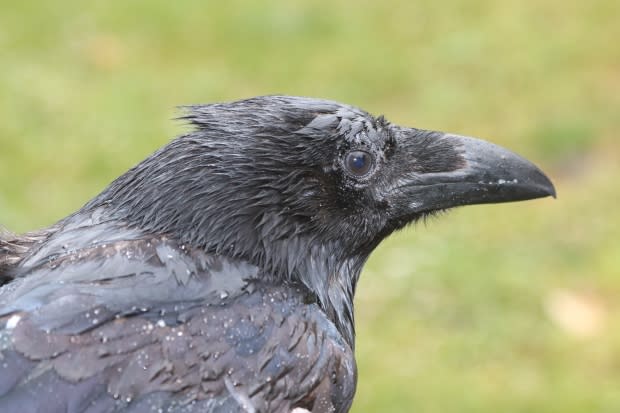
Back at The Boot, one of the bigger draws for an audience is feeding time for the raven chicks. They eat everything from scrambled eggs to raw meat, and since their parents aren't nearby, it's a responsibility that Keen has had to perfect.
"Parent ravens would regurgitate food and drop it in their beaks," said Keen.
After a moment, he clarified: "I'm not regurgitating food into their mouth, I'm just dropping it in with my fingers."
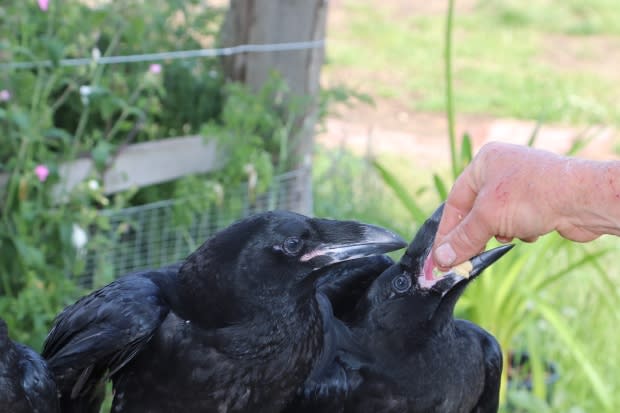
Despite being covered in scrapes and scars, Keen never falters when the birds clip him with their beaks or dig their talons into his skin.
For now, the chicks will remain in Suffolk, where Keen will continue to watch over them like a father figure.
"It's quite a bit of pressure making sure the little fellas stay alive."


